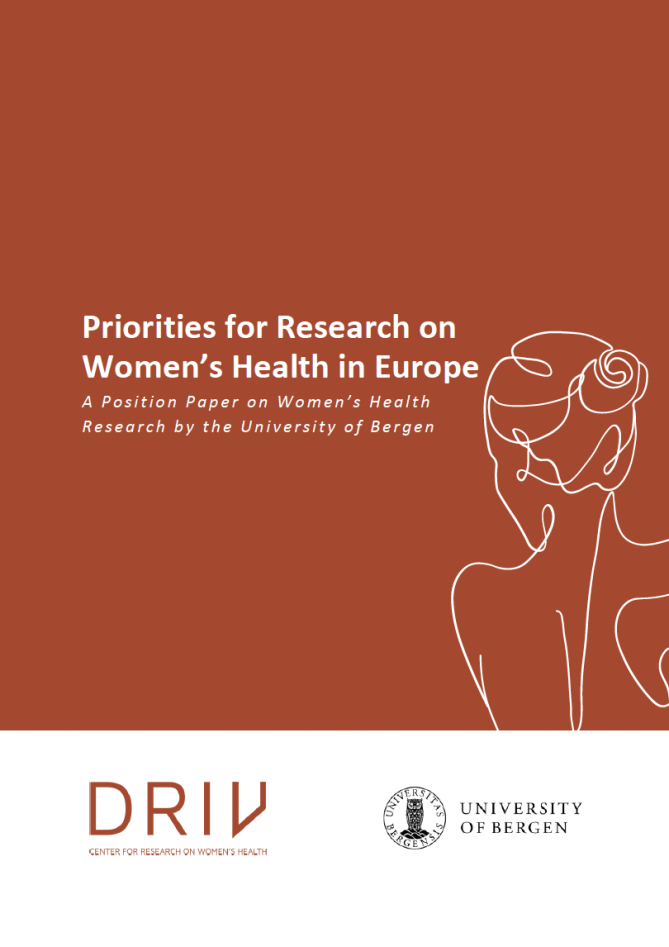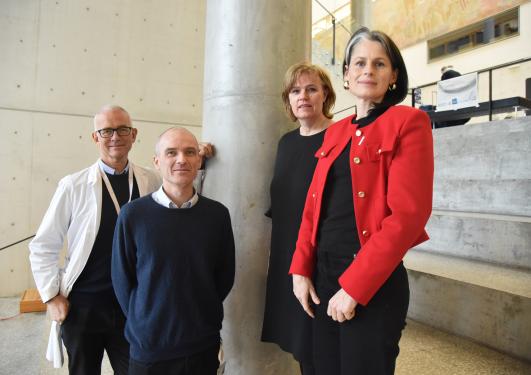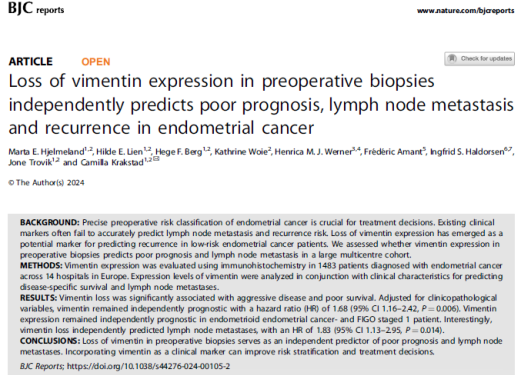A Call for Stronger EU Focus on Women’s Health Research
DRIV – UiB’s Center for Research on Women’s Health urges the EU to strengthen women’s health research in Europe. In this position paper, UiB highlights the need for increased funding, dedicated partnerships, and policy measures to close critical knowledge gaps in women’s health.

Main content
A Research Gap with Economic and Social Consequences
Women’s health remains a blind spot in European research funding, despite its critical role in public health, economic productivity, and gender equality. Despite making up more than half of the population, women remain underrepresented in clinical research, and many diseases that disproportionately affect them are underdiagnosed, undertreated, and poorly understood.
The University of Bergen (UiB) and DRIV – UiB’s Center for Research on Women’s Health are calling for a stronger focus on women’s health research in the remaining part of Horizon Europe and in the EU’s next research programme, FP10.
We welcome the European Commission’s Roadmap on Women’s Rights and its focus on women’s health as an issue. In the follow-up of the roadmap we encourage a broader understanding of women’s health issues beyond gender-specific health risks and sexual and reproductive health, in line with the recommendations of this paper.
Women’s Health - More Than Reproductive Health
Health research has long lacked a comprehensive approach to sex differences, leading to delayed diagnoses, inadequate treatments, and a lack of targeted prevention strategies for women.
We highlight that R&I in women’s health must address diseases that disproportionately affect women, those that present and progress differently in women, and conditions that are specific to women. This includes autoimmune disorders, osteoporosis, and migraines; cardiovascular disease and cancer, which often manifest differently in women; as well as endometriosis, menopause, and maternal health.
Investing in women’s health research is not only a health priority with the potential to have a great impact on the quality of people’s life—it is also an economic and social necessity as poor health can keep women out of the workforce, contribute to long-term sick leave, and limit economic growth.
As demographic shifts and an aging population put increasing pressure on Europe’s labor market, ensuring better health for women, who make up a significant share of the workforce, is essential for long-term competitiveness. A stronger research focus on early diagnosis, better treatment, and improved prevention will not only improve healthcare but also boost workforce participation, reduce healthcare costs, and promote gender equality.
Our key recommendations
- Explicitly include women’s health research in the Horizon Europe work programmes 2026-27 and in FP10.
- Integrate women’s health research into all the relevant existing European Partnerships under Horizon Europe.
- Establish a dedicated Partnership on women’s health R&I in FP10 to ensure long-term commitment to advancing women’s health research.
- Encourage cross-disciplinary collaboration in calls for proposals to address women’s complex health needs.
- Ensure robust female representation in clinical trials to capture sex-specific data.
- Minimize gender bias in health data and ensure fair and accurate insights into women's health.
- Foster international R&I arenas to tackle global challenges in women’s health, supporting Horizon Europe’s Global Health EDCTP3 Partnership.





